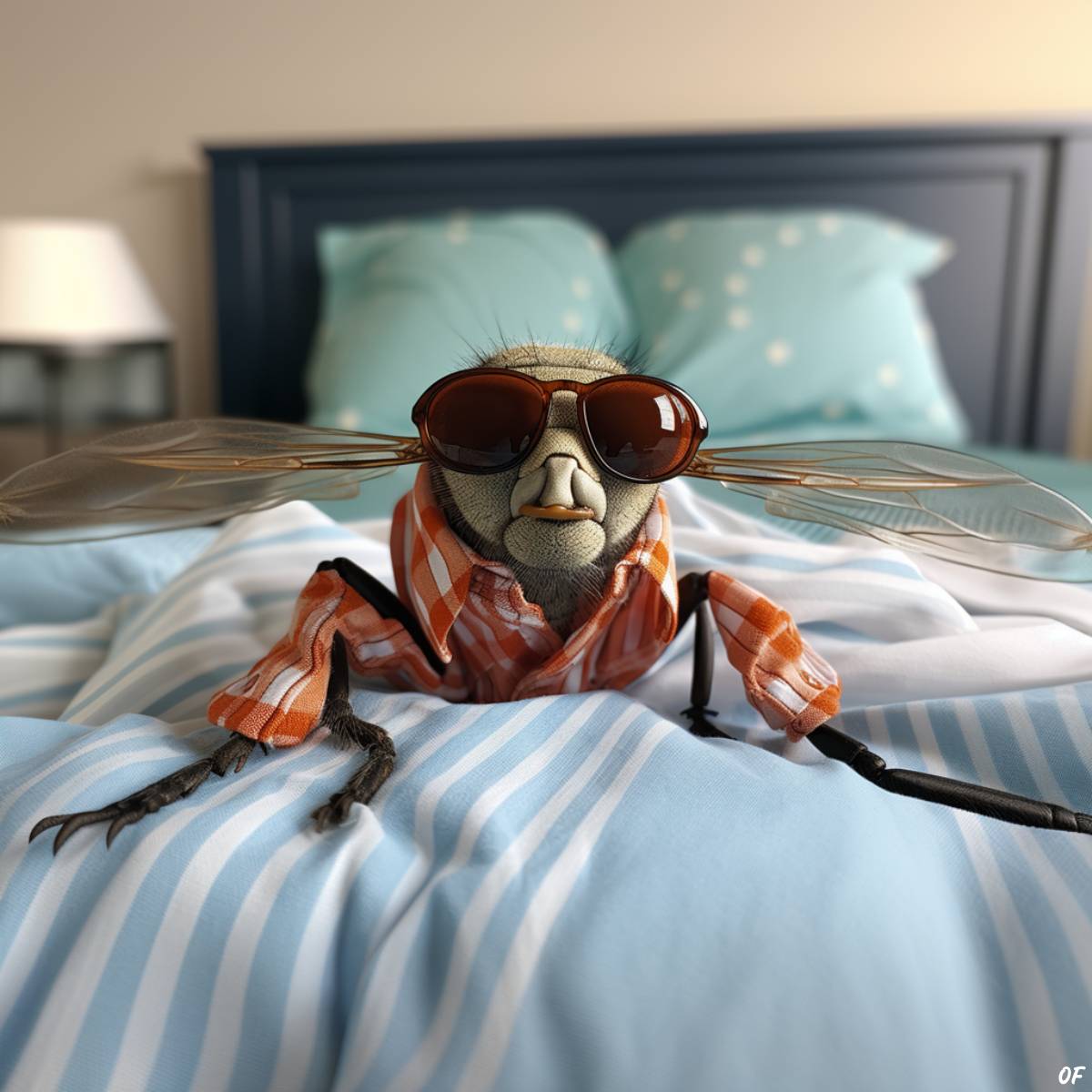Do flies sleep? Well, flies are undoubtedly some of the most annoying creatures on this planet. Thankfully, their ceaseless buzzing stops at night because they take a nice long snooze, just like humans. Actually, fly sleep is similar to human sleep on many levels, and this could help unravel many mysteries.
Before delving into the world of fly sleep, let’s take a moment to acknowledge that flies are more than the lowly housefly alone. They are a despicable bunch: from blowflies and horse flies to fruit flies and mosquitoes, it seems that these two-winged insects live to make life miserable for humans. Yet everything about their sleep eerily resembles human sleep.
What we know about fly sleep
Though flies can take a few short naps during the day, most of them sleep at night. Flies turn in for the night by finding a safe spot where they can sleep—like a leaf or a twig. Here, their sleep cycles through both light and deep phases. It is also known that baby flies need much more sleep than adult flies. Sleep deprivation affects fly memory, and losing sleep one-day results in sleeping more the next.
The similarities to human sleep do not end here. Two proteins responsible for sleep called per and tim build up in your eyes in the dark and break down in the light. These proteins are not only found in humans but in the eyes of flies and other daytime animals. Flies are affected by stimulants that keep humans awake, like caffeine, while antihistamines and alcoholic beverages make them drowsy.
Fruit flies: Unsung lab rats
Scientists admit they are still baffled about many things concerning sleep. Studying human sleep can be tricky, so the answer may lie in studying a simpler organism… like a fly. Fruit flies are wonderful experimental organisms because they have a simple genome and a short life span. Of course, it also helps that most people don’t get too upset about experiments performed on fruit flies. These teeny flies have lent a hand in many experiments over the years, and in a recent study, they not only lent a hand but gave their wings.
In an effort to understand the complex impacts of stress on sleep, researchers conducted an unusual experiment involving flies. Their flight abilities were hindered: young flies were prevented from expanding their wings, while the wings of older ones were cut or glued. It might cause a pang of empathy, as these creatures, often viewed as nuisances, endured such hardships for the sake of our understanding. Strikingly, the flies, unable to fly, slept more. Both normal wing development and wing injury activated the same neural pathways, suggesting that sleep enhances brain plasticity, perhaps to aid survival in their flightless state. These findings could provide a critical lens into understanding human sleep needs and the root of various sleep disorders.
Flies are surprising tutors in our quest to comprehend human sleep. So the next time a fly crosses your path, consider offering a silent tribute for the medical riddles it’s helping to unravel. After that moment of gratitude, your actions are your own.


